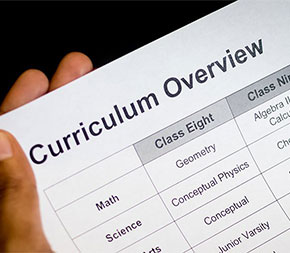What Are the Requirements to Become a Teacher?

by All Star Staff


Few would dispute that it’s important to have good teachers teaching our kids. That’s one of the main reasons teacher career requirements were established in the first place: to ensure that teachers have adequate training and skills, and are prepared to teach effectively.
Most people start their teaching careers with a bachelor’s degree, and many states now require certified teachers to earn a master’s degree within a specified amount of time after their initial certification. But there’s more to it than that.
Career Requirements
All aspiring teachers must consider their state’s teaching requirements before starting their studies. Each state sets its own teacher-certification process, so teachers must first find the applicable information for their location.
Many states have updated their teacher career requirements in the past few years to include higher levels of education, more experience or mandatory teacher examinations.
One exception to the trend toward more education for teachers is alternative teacher certification for teachers in states with teacher shortages.
The No Child Left Behind Act
One of the most sweeping changes to teacher career requirements happened in 2002, when the No Child Left Behind Act (NCLB) went into effect.
According to NCLB, all teachers working in public schools must now be “highly qualified” in each subject they teach. Under the law, “highly qualified” generally means that a teacher is certified and can demonstrate proficiency in his or her subject matter, but the specific definition of this term is determined by each state. Often it means that you have majored in the subject or subjects that you teach.
This requirement means that teachers may need to go back to school to teach in a subject outside of their current teaching specialty. This is a new development; in the past, teachers could more easily teach subjects outside of their primary endorsements.
The extra education and other teacher career requirements mandated by NCLB may have added time and expense to teachers’ training, but the same teacher requirements also equip them for success in their jobs and help them better educate their students.
Although some might complain about the added requirements, few teachers could argue with NCLB’s mandate that teachers be highly qualified. After all, isn’t the desire to provide quality education to students the reason many teachers join the profession?
The Benefits of Teacher Career Requirements
While state-enforced certification regulations may seem cumbersome, the focus on more stringent teacher career requirements does have its benefits.
First, it protects teachers from having to teach subjects in which they have no content expertise. Teaching outside of your area of expertise can be stressful, and is unlikely to translate into more effective teaching.
For example, asking an English teacher to teach U.S. History or a math teacher to lead a gym class may expose students to less-than-optimal teaching at a time when impassioned, knowledgeable instruction is most needed. Increasing teacher certification requirements protects students from low quality instruction that they might receive if their teachers are under-qualified.
But there is another upside for teachers: higher education levels normally provide corresponding higher teacher salaries. If your state requires all certified teachers to earn a graduate degree, you may have to get a fifth year master’s degree, but it also offers the potential for increasing your salary each year after that.
While the education industry is not known for excessive paychecks, it offers a lot of other teacher perks, and consistently rewards continuing education and greater experience.



